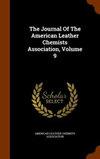Avoiding the Production of Polluting and Toxic Chemicals in the Tanning Process
IF 0.5
4区 工程技术
Q4 CHEMISTRY, APPLIED
Journal of The American Leather Chemists Association
Pub Date : 2021-10-01
DOI:10.34314/jalca.v116i10.4617
引用次数: 0
Abstract
Polluting and potentially toxic chemicals are used in tanning. Sodium sulfide/hydrosulfide are used when the hides are unhaired. These chemicals can be transformed into hydrogen sulfide with a simple change of pH. This gas is highly toxic and is the recurring cause of many deaths and accidents due to suffocation of workers in tanneries around the world. The basic salts of chromium III are the most used chemical to tan. The chromium III used can be transformed by oxidation, even once the leather transformed into a consumer good (shoes, for example), in chromium VI, which is carcinogenic. Both chemicals are present in process floats, in residual floats and in solid waste generated. Chromium III is also present in manufactured leathers. This article aims to describe the problems associated with the use of the aforementioned hazardous materials and deepen the possibility of using less toxic alternative processes to tan. The designed process allows to significantly reduce the pollutant load of the discharged wastewater, facilitates the reuse of the solid waste generated and clearly improve the safety of people at work.避免在制革过程中产生污染和有毒化学品
制革过程中使用污染和潜在有毒的化学物质。当皮革脱毛时使用硫化钠/氢硫化钠。这些化学物质可以通过简单的ph值变化转化为硫化氢。这种气体具有剧毒,是世界各地制革厂因工人窒息而导致许多死亡和事故的反复发生的原因。铬III的碱性盐是晒黑最常用的化学物质。使用的铬III可以通过氧化转化,即使皮革转化为消费品(例如鞋子),也可以转化为六价铬,这是致癌的。这两种化学物质都存在于工艺浮子、残余浮子和产生的固体废物中。铬III也存在于人造皮革中。本文旨在描述与使用上述有害物质相关的问题,并加深使用毒性较小的替代工艺来晒黑的可能性。设计的工艺可以显著降低排放废水的污染物负荷,便于产生的固体废物的再利用,并明显提高工作人员的安全性。
本文章由计算机程序翻译,如有差异,请以英文原文为准。
求助全文
约1分钟内获得全文
求助全文
来源期刊

Journal of The American Leather Chemists Association
工程技术-材料科学:纺织
CiteScore
1.30
自引率
33.30%
发文量
29
审稿时长
3 months
期刊介绍:
The Journal of the American Leather Chemists Association publishes manuscripts on all aspects of leather science, engineering, technology, and economics, and will consider related subjects that address concerns of the industry. Examples: hide/skin quality or utilization, leather production methods/equipment, tanning materials/leather chemicals, new and improved leathers, collagen studies, leather by-products, impacts of changes in leather products industries, process efficiency, sustainability, regulatory, safety, environmental, tannery waste management and industry economics.
 求助内容:
求助内容: 应助结果提醒方式:
应助结果提醒方式:


